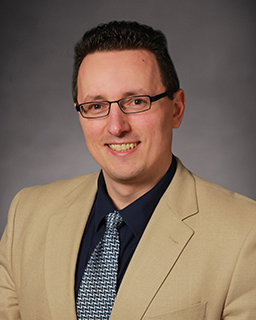Neutron Detection Approaches Based on Material Micro-coating
| Event Date: | October 23, 2019 |
|---|---|
| Speaker: | Dr. Marek Flaska |
| Speaker Affiliation: | Penn State |
| Time: | 3:30 pm |
| Location: | PHYS 112 |
| Priority: | No |
| School or Program: | Nuclear Engineering |
| College Calendar: | Hide |
Abstract
Several overlapping projects will be discussed during the talk. One project is focused on measuring independent and cumulative fission yields of a large number of short-lived fission products for post-detonation nuclear-forensics non-destructive analyses. A wide range of short- lived fission fragments are being characterized with half-lives between approximately one second and several hours by using cyclic neutron activation analysis (CNAA) to support DTRA’s research and development efforts for pre- and post-detonation nuclear forensics. We also use traditional neutron activation analysis (NAA) in conjunction with tailored radiochemistry procedures for fission fragments with half-lives up to several days. Specifically, we use monoenergetic 14-MeV and fast-neutron spectra (~MeV) to measure independent and cumulative fission yields of short-lived fission products (FPs) from fissile and fissionable actinides to enhance precision and expediency of pre- and post-detonation nuclear-forensics non-destructive analyses. These fundamental parameters are poorly known for many FPs, especially for short-lived FPs. The Pennsylvania State Breazeale Reactor (PSBR) and deuterium- tritium (D-T) 14-MeV neutron generator are used to induce fissions in various actinides of interest, namely Th-232, U-233, U-235, U-238, and Am-241.
The main project of this talk is focused on developing a novel micro-particle neutron- detection technology by coating LiF and boron particles with ZnS in a controlled manner, thereby significantly improving the commercially available technology based on mixed powders. Extensive radiation- and light-transport simulations indicate that the new technology has a great potential in substantially improving the powder-based technology. It is expected that the new technology will have applications in many areas dependent on neutron detection. The most recent results will be presented in detail to assess the potential of this new neutron- detection technology.
Bio
Dr. Flaska is an assistant professor in Ken and Mary Alice Lindquist Department of Nuclear Engineering of the Pennsylvania State University. He is also the director of the Radiation Detection, Characterization, and Imaging Laboratory (RDCI). Dr. Flaska’s research interests are radiation detection, characterization, and imaging with focus on nuclear nonproliferation, nuclear safeguards, nuclear forensics, and fundamental nuclear physics. Dr. Flaska has been actively working in these since 2006. Dr. Flaska has conducted funded research for the Department of Energy, Department of Defense, National Nuclear Security Administration, and
industry. Finally, Dr. Flaska has authored or co-authored over 200 journal and conference proceedings publications.
2019-10-23 15:30:00 2019-10-23 16:30:00 America/Indiana/Indianapolis Neutron Detection Approaches Based on Material Micro-coating PHYS 112

